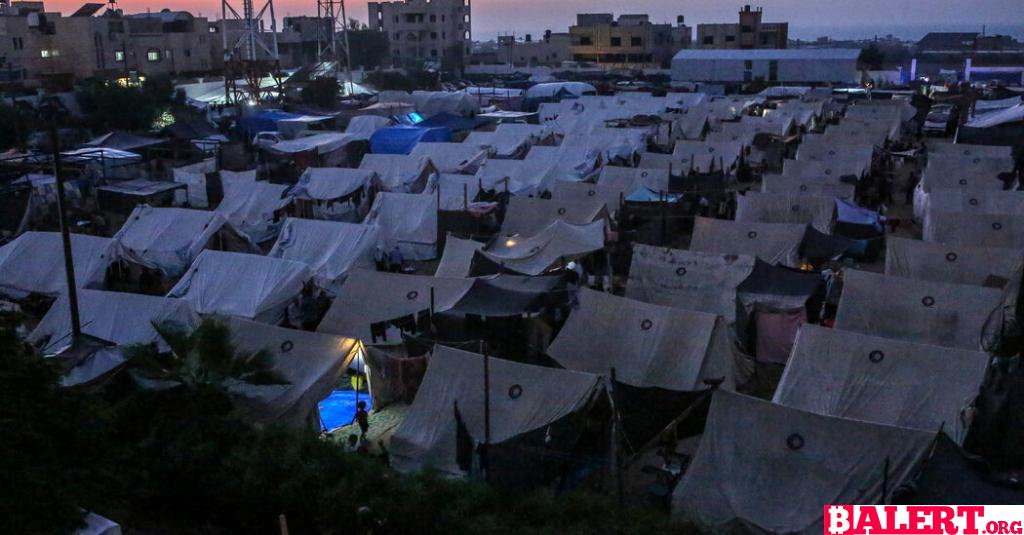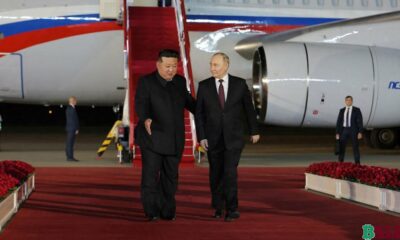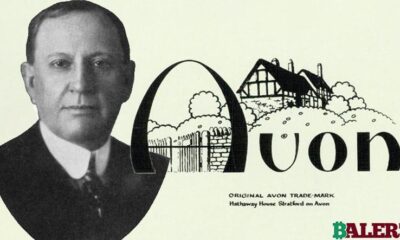World
The Crisis of UNRWA Amidst Ongoing Conflict in Gaza
Explore the deepening crisis of the United Nations Relief and Works Agency (UNRWA) amidst the ongoing conflict in Gaza. Understand the challenges faced by this vital organization and its impact on Palestinian refugees.

The Crisis of UNRWA Amidst Ongoing Conflict
In mid-January, Philippe Lazzarini, the head of the United Nations agency for Palestinian refugees, faced a dire challenge that threatened the very existence of his organization. The United Nations Relief and Works Agency, known as UNRWA, was already grappling with significant crises. Three months had gone by since Hamas militants breached the barrier separating Gaza from Israel, resulting in the tragic loss of approximately 1,200 lives and the abduction of 250 individuals as hostages. In a swift and fierce retaliation, Israel unleashed a barrage of bombs across Gaza, claiming tens of thousands of lives while vowing to dismantle Hamas.
UNRWA was uniquely positioned to address the ensuing humanitarian disaster. Over two-thirds of Gaza’s 2.2 million inhabitants are refugees, and the agency’s role in providing essential services has become increasingly vital. Following Hamas’s takeover of the Gaza Strip in 2007, which ousted the Palestinian Authority that now operates solely in the West Bank, many Gazans found themselves relying heavily on UNRWA for support. Prior to the outbreak of war, UNRWA operated more than 300 schools, health clinics, warehouses, fuel depots, and various other facilities within Gaza, employing around 13,000 individuals. Unlike other U.N. agencies, UNRWA’s workforce is predominantly comprised of local Palestinians, ensuring a deep-rooted connection to the community.
As Israel’s relentless bombardment continued, there was no other organization as entrenched in the territory, equipped with the necessary infrastructure to distribute food, provide shelter, and meet the urgent needs of countless displaced and traumatized individuals. Lazzarini, a seasoned Swiss-Italian diplomat with extensive experience in United Nations aid operations across Africa, the Middle East, and beyond, took charge of UNRWA in 2020. His objective was to stabilize the agency’s operations. However, the outbreak of war abruptly halted those aspirations. Repeated evacuation orders and the devastation wrought by Israel’s airstrikes have displaced around 90% of Gaza’s population, with many individuals being uprooted multiple times. At various points, UNRWA has reported that over a million people — nearly half of Gaza’s populace — have sought refuge in its facilities, with large families crammed into classrooms or warehouses that once stored essential supplies like flour and medicine.
Throughout the conflict, Lazzarini engaged in regular discussions with Israeli officials to facilitate the movement of humanitarian aid and agency personnel within Gaza. The relationship between UNRWA and Israel has historically been fraught with tension, primarily due to the agency’s connection to one of the most contentious aspects of the Israeli-Palestinian conflict: the plight of Palestinian refugees. Established in 1949, UNRWA was tasked with caring for Palestinians who fled or were forcibly removed from their homes during the establishment of the Jewish state. As the original Palestinian refugees passed their status to subsequent generations, their numbers swelled to nearly six million, predominantly residing throughout the Middle East.
UNRWA represents a unique historical anomaly: it is the only U.N. agency dedicated to a specific group of refugees, yet it lacks the authority to address the root causes of their displacement and statelessness. Its funding, largely derived from Western countries, is viewed as a stabilizing force in a region rife with volatility, aimed at maintaining order until a resolution regarding the Palestinian refugee issue can be achieved through diplomatic negotiations. Conversely, many Israelis, particularly under the leadership of Prime Minister Benjamin Netanyahu, hold a different perspective. They argue that UNRWA’s very existence perpetuates the ongoing conflict by sustaining the belief that one day, these refugees will be able to return to their ancestral lands, which now constitute the state of Israel, thereby threatening its existence.
On January 18, Lazzarini arrived at the David Kempinski Hotel in Tel Aviv to meet with Amir Weissbrod, a deputy director at the Israeli Foreign Ministry. Weissbrod had indicated he had critical information to share, leading Lazzarini to anticipate unfavorable news. When they met, Weissbrod presented a handwritten list in Hebrew, detailing 12 UNRWA employees whom Israel alleged had participated in the October 7 attack. The accusations were grave and cursory but explosive: these individuals were said to have assisted with logistical support, crossed into Israel during the assault, engaged in attacks against Israelis, and played a role in the hostage-taking.
World
Dominique Pelicot Testifies in Harrowing Rape Trial
Join us as Dominique Pelicot courageously testifies in a harrowing rape trial, shedding light on the complexities of trauma and justice. Her powerful story raises crucial questions about the legal system and the importance of support for survivors.

Dominique Pelicot Takes the Stand in Shocking Rape Trial
In a courtroom drama that has captivated France and garnered international attention, Dominique Pelicot, the man at the center of a harrowing rape trial, finally addressed the court. With tears streaming down his face, he recounted how his wife had been instrumental in helping him cope with a tumultuous past marked by trauma. He revealed that he had endured a sexual assault at the tender age of nine while hospitalized, and he also witnessed a gang rape during his teenage years while working as an apprentice electrician on a construction site.
“She didn’t deserve this, I acknowledge that,” Mr. Pelicot stated, his voice barely audible as he struggled to convey his emotions. The gravity of the situation weighed heavily on him, and the courtroom fell silent, straining to catch his every word.
Now 71 years old, Mr. Pelicot faces serious allegations of drugging his wife, Gisèle Pelicot, whom he has been married to for half a century, over a span of nearly ten years. Prosecutors contend that he used drugs to render her comatose, allowing him to rape her repeatedly. Furthermore, authorities allege that he went so far as to invite numerous men into their home, facilitating a nightmarish scenario where they, too, engaged in the assault of his wife.
Overall, 51 men, including Mr. Pelicot, are on trial concurrently, primarily facing charges related to the aggravated rape of Ms. Pelicot. Among them, one individual has already pleaded guilty to similar crimes, admitting to drugging his own wife to assault her and inviting Mr. Pelicot to partake in the horrific act while she was incapacitated.
Mr. Pelicot’s unexpected testimony came after a tumultuous start to the trial. Just a week in, he was stricken with severe health issues that forced him to miss four consecutive days in court. The head judge ultimately decided to postpone proceedings, as Mr. Pelicot was diagnosed with kidney stones, a kidney infection, and prostate complications, adding yet another layer of complexity to this already harrowing case.
World
Meta Bans Russian State Media Outlets from Social Media Platforms
Explore the implications of Meta’s decision to ban Russian state media outlets from its social media platforms. Understand the impact on information dissemination and the ongoing battle against misinformation in the digital landscape.

Meta Imposes Global Ban on Russian State Media Outlets
In a significant move, Meta Platforms, Inc., the parent company of Facebook, has announced the prohibition of Russian state media outlets, including RT (Russia Today) and Rossiya Segodnya, from all its social media platforms. The decision stems from the company’s concerns regarding the deceptive strategies employed by these media organizations to execute covert influence operations across the internet.
Meta made this announcement on Monday, emphasizing that the ban will be enforced worldwide across its various platforms, such as Instagram, WhatsApp, and Threads. The rollout of this ban is expected to take place over the coming days.
Statement from Meta
A spokesperson for Meta elaborated on the decision, stating, “After careful consideration, we have expanded our ongoing enforcement actions against Russian state media outlets. As a result, Rossiya Segodnya, RT, and other affiliated entities are now banned from our applications globally due to their involvement in foreign interference activities.”
For further insights into this development, watch the video in the player above.
World
Trump Recalls Alleged Assassination Attempt While Golfing
Explore Donald Trump’s chilling recollection of an alleged assassination attempt he experienced while enjoying a round of golf. Delve into the tense moments and his reflections on safety, fame, and the unpredictability of public life.

In a recent interview on the social media platform X, Republican presidential nominee Donald Trump recounted a harrowing incident he claims to have experienced while playing golf. Trump described how, during a peaceful Sunday morning round with friends, the tranquility of the day was abruptly shattered by the sound of gunfire in the air.
“It was a beautiful day, everything was just perfect,” Trump reflected. “Then all of a sudden, we heard shots being fired—probably around four or five in total.” He went on to explain that a Secret Service agent was the first to spot the suspect, who was allegedly armed with an AK-47, a powerful assault rifle.
“The agent saw the barrel of the weapon and immediately took action, returning fire at the barrel and aiming in the direction of the bushes,” Trump detailed. “I would have loved to have sunk that last putt, but we decided it was best to leave the scene promptly.”
Trump expressed his gratitude towards the agents and a vigilant civilian who aided in tracking down the suspect, who was eventually apprehended following a high-speed chase.
Suspect Faces Multiple Federal Gun Charges
The FBI has identified the suspect as Ryan Wesley Routh, accusing him of targeting Trump during his time at the golf club in West Palm Beach, Florida. According to an FBI report, Routh had allegedly hidden among the hedges of the golf course for an astonishing 12 hours. Authorities discovered an SKS-style assault rifle, a GoPro camera, and a bag of food at the scene.
The 58-year-old Routh is now facing two serious federal gun charges. If convicted on both counts, he could face a combined maximum sentence of 20 years in prison. Notably, neither of the charges is directly related to an assassination attempt. The first charge pertains to possessing a firearm despite a prior felony conviction, which carries a potential 15-year sentence, a fine of $250,000 (€225,000), and three years of supervised release.
The second charge involves possession of a firearm with an obliterated serial number, which could result in a five-year prison term, the same financial penalties, and also three years of supervised release. As the investigation continues, additional charges could be forthcoming.
While the motive behind Routh’s actions remains unclear, his digital footprint reveals strong political affiliations, particularly concerning issues surrounding Ukraine and China. Routh consistently expressed support for Ukraine across various social media platforms, even claiming to have orchestrated a recruitment scheme for international volunteers aiming to assist Ukraine in its fight against Russia’s invasion. This behavior has been denounced by Ukrainian soldiers and members of the International Legion, who disavowed Routh’s actions and motives.
-

 Business4 months ago
Business4 months agoObituary: Dan Collins
-

 Business3 months ago
Business3 months agoThe Significance of Jackson Hole: A Central Banking Tradition
-

 Gaming5 months ago
Gaming5 months agoMore than a thousand students vowed not to work for Amazon and Google due to the Nimbus Project.
-

 World5 months ago
World5 months agoRussia and North Korea Strengthen Defense Ties
-

 Business5 months ago
Business5 months agoJump Crypto Invests $10 Million in Pro-Crypto PAC
-

 Article5 months ago
Article5 months agoCreative Design Applications Developed with Artificial Intelligence
-

 Tech2 months ago
Tech2 months agoNew Leaks and Features About the Samsung Galaxy S25 Ultra
-

 Gaming5 months ago
Gaming5 months agoThe Inspirational Success Story of Avon’s Founder Who Sold Books Door to Door














